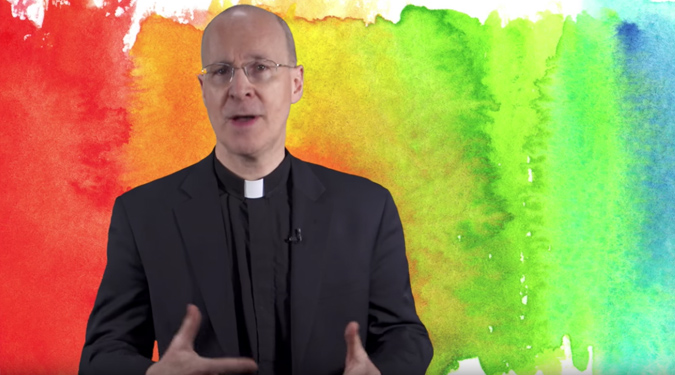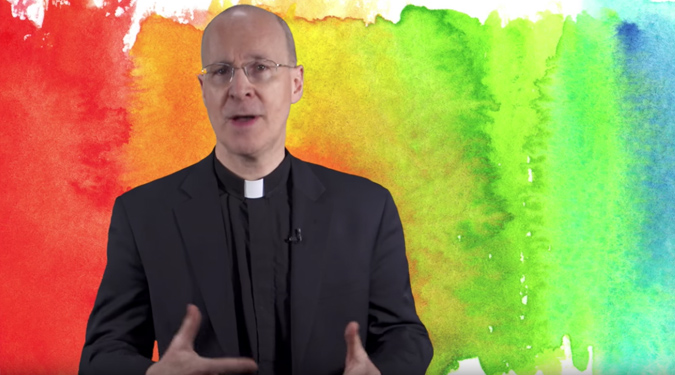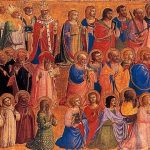
I am not a “traditionalist”. At least not in the sense that the term has come to mean these days in common ecclesial parlance. I have sharp theological disagreements with the theological tendencies among some traditionalists on a range of issues. Nevertheless, they are a part of the Church, and their concerns should not be trivialized as unimportant or summarily dismissed via the pathway of lazy and breezy caricatures of them as just a gaggle of “anti-Vatican II” malcontents.
However, there are some, especially among the strongest apologists for the Francis papacy, who accuse traditionalists of interjecting a “toxic” divisiveness that undermines Church unity and jeopardizes ecclesial peace. This fact, they say, justifies the draconian restrictions introduced by Pope Francis, in Traditionis Custodes, on the traditional Latin Mass (TLM).
I am not here to re-litigate that debate or to argue that there are not indeed such toxic elements within the traditionalist movement. Instead, I want to call into question the response of the Church to the alleged toxicity of the movement—a reputation that I think is exaggerated—by engaging in the much-maligned practice of “whataboutism”. This practice can, on occasion, be a deflection from examining one’s flaws and should usually be avoided. Nevertheless, it can also be used legitimately to point out double standards, especially when ecclesial authorities are quick to discipline the failures of some while ignoring equally problematic failures in others. And this becomes acutely important when it appears that those authorities have their thumb on the scales of pastoral justice based upon unarticulated theological commitments.
Furthermore, it is precisely the ongoing presence in the Church of an apparent set of double standards—one stern and directed at the traditionalist wing of the Church and the other a more lenient latitudinarian tolerance for the more progressive wing of the Church—that is, at least in part, the generative cause of whatever “overreactions” one sees among some traditionalists. Ecclesial peace, therefore, cannot be brought about in such an environment by doubling down on the double standard since all that does, as we saw with Traditionis Custodes, is create deeper resentments and encourages a festering anger.
“Outreach” or overreach?
One example of such a double standard is the benign allowance, and sometimes even support, of the “Outreach” ministry by Fr. James Martin, SJ. To be clear, I have no animus whatsoever against Fr. Martin, who seems to be a very likable, congenial, and kind-hearted man. And I believe that reaching out to homosexuals with pastoral sensitivity and love is a laudable pastoral goal. I have spoken to folks who know Fr. Martin personally and who confirm this assessment. He is as he appears to be in his public persona, which is a person possessed of genuine empathetic impulses. And I see no reason to doubt that assessment.
Nevertheless, who can doubt that the overall tenor and message of his ministry calls into question the Church’s teachings on homosexuality and, by downstream implication, the entirety of the Church’s traditional teachings on sexuality? Fr. Martin is careful to steer clear of explicitly rejecting this teaching. However, his careful attempts to stay within the boundaries of orthodoxy are minimalist and rather juridical. He does not explicitly deny Church teaching, but he has also never publicly affirmed it as something he accepts and embraces.
This smacks of a disingenuous “strategy” to fly under the radar of a robust orthodoxy in moral matters in order to avoid censure, as his entire ministry is geared toward the attenuation of this orthodoxy by attempting at every turn to normalize homosexual relationships as thoroughly unproblematical expressions of love. He may not openly deny Church teaching, but in his efforts at normalizing homosexual relationships as healthy, love-engendering unions, he subtly (but forcefully as well) undermines the normativity of the Church’s theological anthropology of human beings created by God as male and female and oriented toward procreative, lifelong commitment in marriage.
Nor will it do to affirm simply that even if this is the “norm,” there can be deviations from this norm that are perfectly moral. Because in so admitting of “exceptions,” Fr. Martin is implicitly affirming that they too are willed directly by God as part of the kaleidoscopic landscape of human sexuality. Thus, their relationships are not “disordered” but merely “differently ordered”. But this runs counter to the entire trajectory of the pedagogy of Divine Revelation on this issue, the entirety of the Jewish and Christian moral traditions that have developed from that pedagogy, and the entirety of the Church’s moral and theological teachings on sexuality.
Nor does Fr. Martin provide us with a set of theological criteria for adjudicating between aspects of the sexual rainbow of differences that are healthy and those that are not. It would seem that the only criterion he provides is whether the relationships in question are “loving” and therefore reflective of the presence of God’s approbation. But if this is so, then what is the line of demarcation between homosexual unions and polygamous ones, or polyamorous relationships, or those who merely cohabitate without marriage, or even incestuous relationships where there is no possibility of inbred procreation? I could go on with further examples, but the point is made.
The Scriptures never teach that the sole criterion for morally sound relationships is some vague and sentimental notion of “love”. Nevertheless, Fr. Martin refers to passages in Scripture, which clearly teach against homosexual acts, as “clobber verses” and posts articles on his webpage that employ very questionable scriptural exegesis in seeking to undermine their normativity.
This seems a strange thing to do if one is committed to the Church’s teaching. Instead, it speaks to an implied dissent from those teachings when, at every turn, the evidence of Revelation is turned on its head and made to appear as at least silent on the issue, when it most certainly is not. This is why, for instance, the Catechism states:
Basing itself on Sacred Scripture, which presents homosexual acts as acts of grave depravity (Cf. Genesis 19:1-29; Romans 1:24-27; 1 Corinthians 6:10; 1 Timothy 1:10), tradition has always declared that “homosexual acts are intrinsically disordered.” (Congregation for the Doctrine of the Faith, Persona humana, 8). They are contrary to the natural law. (CCC 2357; emphasis added)
The tired accusation of “homophobia”
This implicit dissent leads to an inversion of moral values. Those who continue to affirm the Church’s teachings on homosexuality are accused of the all-purpose, catch-all term “homophobia”.
For example, the Supreme Court affirmed recently that parents have a right to keep their children out of “LGBTQ diversity” lessons in school, and that they have a right to object to books in the school library that are texts of LGBTQ normalization advocacy.
In a June 27th essay on the Outreach site, Fr. Martin strongly objects to this ruling. He affirms there might be library books that are inappropriate for minors if they are sexually explicit, but then laments the dangerous slippery slope of allowing parents to have such rights as enumerated by the court. He states:
But pretty soon, it’s possible that even speaking to, or doing business with, an LGBTQ person (or having them teach your children) could be framed as a threat to one’s “religious values.” It’s important to remember that Christianity should not be used as a fig leaf for homophobia. Moreover, many straight Christians want to be welcoming to LGBTQ people; and many straight Christian parents pray that their children will come to know LGBTQ people as their brothers and sisters. Being Christian does not mean being homophobic.
This is vicious in its own subtle way since it clearly implies that the parents involved are just anti-gay bigots who are misusing their religion as a “fig leaf” that hides a simple animus against homosexuals. One could just as easily turn this argument against Fr. Martin and accuse him of using his religion as a fig leaf to cover over what is nothing more than a robust affirmation of the modern secular ideology of the sexual revolution.
Fr. Martin’s accusations imply a deep contempt for the sensibilities of parents who are not as bigoted or as stupid as he infers, and who know darn well that what is really going on is not a simple lesson in being accepting of the diverse human landscape and is instead a widespread and entrenched form of indoctrination.
Normalization of deviancy
Once again, the real issue here is not diversity but the normalization of homosexual acts as perfectly moral. When I was in elementary (public) school in the Sixties, we were already being taught in my social studies courses about different cultures, races, nations, and customs. We were taught to accept such diversity and were challenged to welcome it. It was the era of Martin Luther King Jr. and the civil rights movement, and we are taught about the history of slavery, Jim Crow laws, and racism. No parent that I know of objected to this, and it was in no way resisted by racist or xenophobic parents who used their religion as a fig leaf to cover over rank bigotry.
Therefore, it is simply wrong to assert that what parents today are objecting to is “diversity” as such, but rather the weaponization of this idea. They recognize it is a battering ram of indoctrination into the supposed moral legitimacy of a set of sexual practices at odds with the vast majority of the religions of the world. They are objecting to the quasi-religious status that the “LGBTQ+” ideology has reached in our culture and the attempt by various levels of government to impose what is, in essence, an established religion of rainbow enthusiasms on their children.
There are countless ways to teach diversity to students without imposing upon them such an ideology. And nobody is objecting to teaching tolerance for diversity as a broad civic virtue in a healthy democracy. Fr. Martin fails to acknowledge this fact and thereby tips his hand as to his true objective, which is the normalization of homosexual acts via indoctrination into the rainbow mythology of God-willed sexual fluidity.
Freedom of religion is the first right mentioned in the Bill of Rights, and with good reason. But Fr. Martin, shockingly, treats this right as a threat wielded by homophobes to undermine this agenda. He never acknowledges that the religious conscience rights of parents are important and central to a proper Catholic understanding of child-rearing.
To that end, in the same essay, Fr. Martin appeals to the same tired mantra that Jesus, in the parable of the good Samaritan, warns us not to turn our religion into a fear of “the other”. However, as is always the case when this parable is cited by pro-LGBTQ+ Catholics, its exegesis is marred by ignoring the context of the parable. What Jesus is warning against is not making necessary moral adjudications and distinctions, but rather against turning the religion of Abraham, Isaac, and Jacob into an idolatrous ethno-nationalistic ideology of hatred toward foreigners. Yes, there is the element of Judaic rejection of Samaritan theological claims that is being questioned by Jesus as a litmus test of purity, but the parable is decidedly not about accepting any or all moral “differences” in the sexual domain.
But Fr. Martin uses the parable as an undifferentiated condemnation of religious parents who are objecting to the sexual moral indoctrination in school of their children, and implies that all such efforts are an exercise in the false religiosity condemned by Jesus. There is also a not-so-subtle hypocrisy in this demonization of the religiosity of the parents in question, since Fr. Martin is himself using a religious argument to “exclude” them from the conversation as dangerous, bigoted interlocutors who are being disingenuous.
One could just as easily claim that it is the parents who are the Samaritans of today who have run afoul of the dominant established LGBTQ-religion of the public schools.
The glaring double standard
Returning then to where I started, the silence of Church authorities to the ministry of Fr. Martin speaks volumes about a glaring double standard. It is apparently okay to work to undermine the Church’s teachings on sexuality, or even, as in the case of Cardinals McElroy and Hollerich, to reject them on the topic of homosexuality. But it is not okay for traditionalists to question the direction taken by the post-conciliar Church in liturgical matters.
Indeed, Fr. Martin was given a Vatican job and made a voting member of the Synod on Synodality, even as Courage International was excluded. And Cardinal Hollerich, who dissents from Church teaching on this issue, was made the Relator General of the Synod.
Are we not allowed to be a bit perplexed by such double standards? Are we not allowed to question the “no enemies to the Left of me but only to the Right of me” mentality that seems to be the default attitude of so many Church leaders these days?
I am not trying to be “clever” here in appealing to dialogue and synodal listening. I think such things are important. Rather, it is my hope and prayer that Pope Leo seeks to remedy this double standard. And, in the interests of parrhesia and synodal dialogue, he treats the critical voices on the Catholic Right with the same deference that has been shown to Fr. Martin and his allies.
Related at CWR:
• The Triumph of the Therapeutic Mentality (June 6, 2024) by Eduardo Echeverria
• Call to Conversion and Holiness (June 9, 2024) by Eduardo Echeverria
If you value the news and views Catholic World Report provides, please consider donating to support our efforts. Your contribution will help us continue to make CWR available to all readers worldwide for free, without a subscription. Thank you for your generosity!
Click here for more information on donating to CWR. Click here to sign up for our newsletter.











